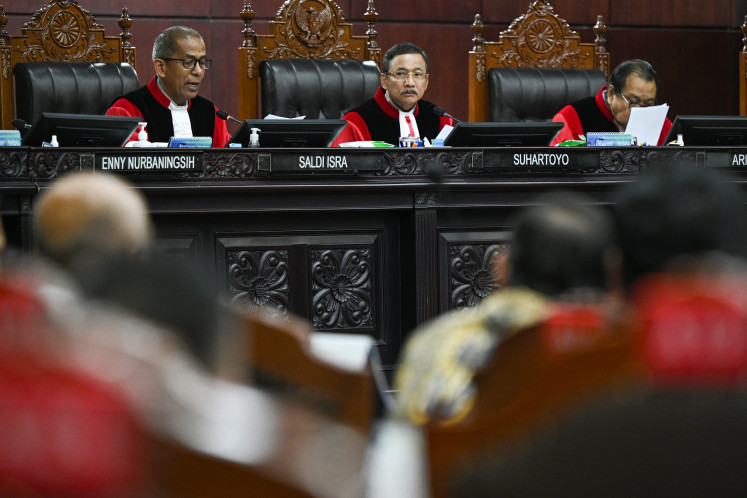Popular Reads
Top Results
Can't find what you're looking for?
View all search resultsPopular Reads
Top Results
Can't find what you're looking for?
View all search resultsUS scholar studies autism, culture in Yogyakarta
Autism and the way one particular school in Yogyakarta works with autistic children has attracted an American scholar and documentary filmmaker, Robert Lemelson, to conduct research on this particular disorder in the province
Change text size
Gift Premium Articles
to Anyone
A
utism and the way one particular school in Yogyakarta works with autistic children has attracted an American scholar and documentary filmmaker, Robert Lemelson, to conduct research on this particular disorder in the province.
Lemelson is a research anthropologist at the Semel Institute for Neuroscience and Human Behavior at the University of California, Los Angeles (UCLA).
Conducted as part of his project on autism, culture and music in Java, his research began over the weekend at Bina Anggita, a school specially designed for children with autism, in Wonocatur, Bantul regency, Yogyakarta.
“I am not aware of the epistemological research on autism in Indonesia but the fact that you now have schools and programs on autism indicates that there has been growing awareness about the importance of providing treatment as early as possible,” Lemelson told The Jakarta Post on the sidelines of his activities at the school on Saturday.
In the US, this particular disorder is recognized to have epidemic proportions, being found to occur in one in 10,000 to 100,000 children, he said.
Research in the US has confirmed that the earlier treatments, care, education and training are offered to children with autism, the better the outcome for them in later years.
He said he had decided to conduct research on autism and to make a documentary film on the subject at the school after hearing from one of his graduate students who had previously carried out similar studies for a year in Indonesia.
One thing that his graduate student had discovered, Lemelson said, was the pivotal role of gamelan music in the treatment provided to autistic children.
Lemelson arrived, therefore, with the notion that traditional Javanese gamelan music might be very helpful in treating children with autism. There was also something specific about the way gamelan was taught and the effect of the music’s frequency on the children’s brains, he said.
This, he added, could be implemented as a novel treatment method to help children with autism concentrate better, socialize, be more active in their communities, increase their intellectual ability and decrease some of the negative effects associated with autism, such as anger or rage.
Budi Raharja, the school’s gamelan teacher, said he had been teaching autistic students to play gamelan music for about three years and could see how it helped in the students’ development.
“I monitored their brain activity using an EEG device and discovered that their brains were mostly in a calm state when they listened to gamelan music,” he said.
Bina Anggita, which was established 13 years ago, works with 30 autistic students, some of whom come from outside Yogyakarta and even from beyond Java, according to the school’s founder, M. Yasin.
“Some of our alumni have gone on to live normal, independent lives, continuing their studies through university or college,” M. Yasin said.










